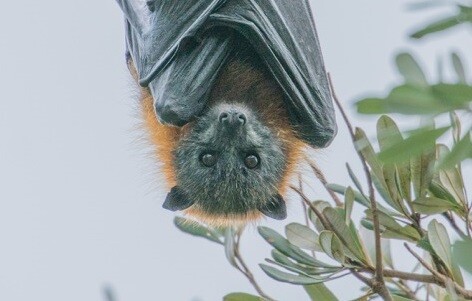2025 Mikla Lewis Grant - Gondwana Rainforest Trust
February 2026
For emergency rescue support 24/7 please call 1300 094 737

Large areas of Northern NSW and South East Queensland are experiencing what appears to be a severe flying-fox starvation and dehydration event.
It is thought that the unusually dry conditions have affected flowering and fruiting of their usual feed trees. Moisture content on foliage is currently very low and fruit and flowers lack the normal amount of moisture, which is where flying-foxes, commonly known as fruit bats, get their nutrition and hydration.
WIRES branches are receiving unprecedented numbers of flying-fox calls for this time of the year and volunteers are overwhelmed by the number of animals needing urgent assistance.
Spring and summer are always extremely busy for wildlife rescues, this is before the additional stress of emergency events such as fires, heat-stress events and dire food and/or habitat shortages. Spring is also the start of the birthing season and the current situation may see more females get into difficulty birthing and more pups may be separated from their mothers.
Emergency Rescue Advice for Flying-Foxes
Flying-foxes are frequently rescued after being caught and injured in fruit netting or on barbed wire, if you see any animal caught in netting or on wire, call our Rescue Line 1300 094 737 immediately for assistance. To help protect native animals from these injuries in future, please read our factsheets to find out more about wildlife friendly netting and wildlife friendly fencing and share them with your friends, family, colleagues and neighbours.
Threatened Species Preservation
Flying-foxes are very intelligent creatures and play an important role in Australian environments. They are natural pollinators and seed dispersers and are crucial for the survival and regeneration of our native forests.
With flying-foxes, particularly Grey-Headed Flying-foxes already listed as vulnerable to extinction, community help is needed to save as many individuals as possible and long-term to save these species.
To assist please plant native trees and plants so that in the future more wildlife will have access to food, consider becoming a wildlife rescuer and carer to help native animals in distress, and donate to help WIRES respond to this event and future emergencies as they occur.
Stay in touch and get our regular rescue stories, WIRES updates and a free copy of our 15 Ways to Help Wildlife ebook
February 2026
February 2026
February 2026
February 2026
January 2026
January 2026